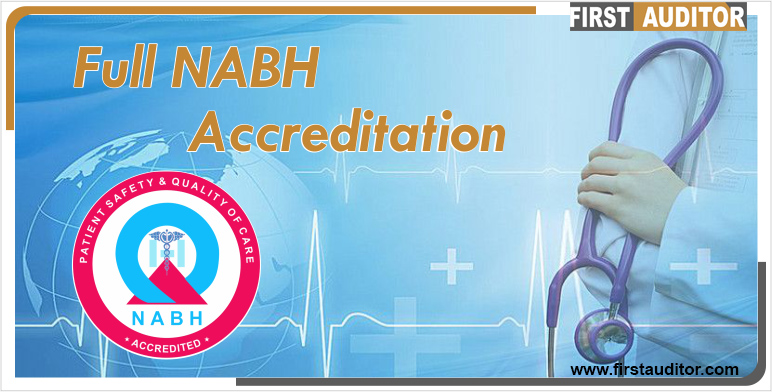Upon NABH Pre Accreditation Entry Level Certification is obtained, the HCO now prepares and move to the next stage which is called Progressive Level and at the end, Hospital will go for full Accreditation. NABH's full accreditation methodology provides a step-by-step and dramatic approach, which is applied by the HCOs. The aspirant hospital shall conduct self-assessment in contradiction of NABH Pre Accreditation Entry Level standards after implementing it for at least three months before the proposal of application and shall ensure that it complies with the standards.

There are various benefits to all the stakeholders of the organization, few of them are listed below:
The hospital shall apply to NABH in the recommended application form. The application shall accommodate the following:
After receiving the NABH application, the form will be examined, and the hospital will receive an acknowledgment letter for the submission along with a special reference number.
The hospital's pre-assessment is handled by a Principal Inspector/Valuation Team that NABH aligns as the following stage.
The applicant hospital is required to make the necessary corrections to the irregularity identified during the pre-assessment. A thorough examination of hospital operations and services is part of the final appraisal.
A three-year accreditation certificate will be issued to the hospital upon the completion of the aforementioned processes by NABH. A scope of accreditation is attached to the certificate.
As previously mentioned, a hospital's accreditation is good for three years. In a three-year certification cycle, the NABH team performs one investigation of the accredited hospitals. At least six months before the accreditation's validity expires, the medical facility must request for renewal.
NABH (National Accreditation Board for Hospitals & Healthcare Providers) Accreditation is a quality certification for healthcare organizations in India, ensuring they meet specific standards of quality and patient safety.
Healthcare organizations including hospitals, clinics, nursing homes, and other medical facilities can apply for NABH Accreditation to demonstrate their commitment to quality healthcare delivery.
Benefits include improved quality of care, enhanced patient safety, increased credibility, and recognition in the healthcare sector, leading to increased patient trust and business growth.
The process involves an initial self-assessment, documentation submission, on-site evaluation by NABH assessors, and addressing any non-conformities before receiving the accreditation certificate.
NABH Accreditation is valid for three years, after which the organization must undergo a reaccreditation process to maintain its accredited status.
NABH Accreditation is not mandatory; however, it is highly recommended for healthcare providers seeking to enhance quality and patient safety, as well as improve their market position.